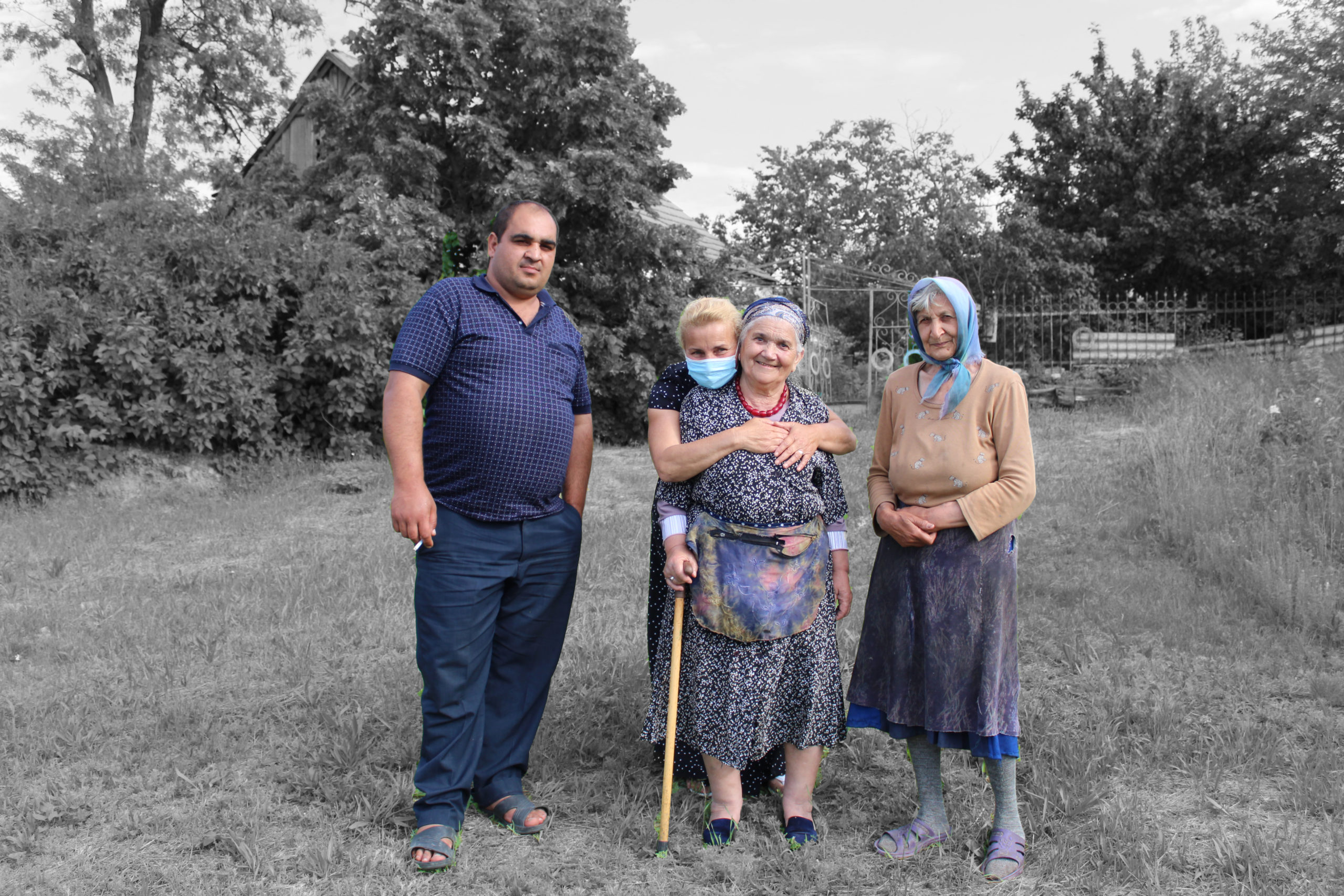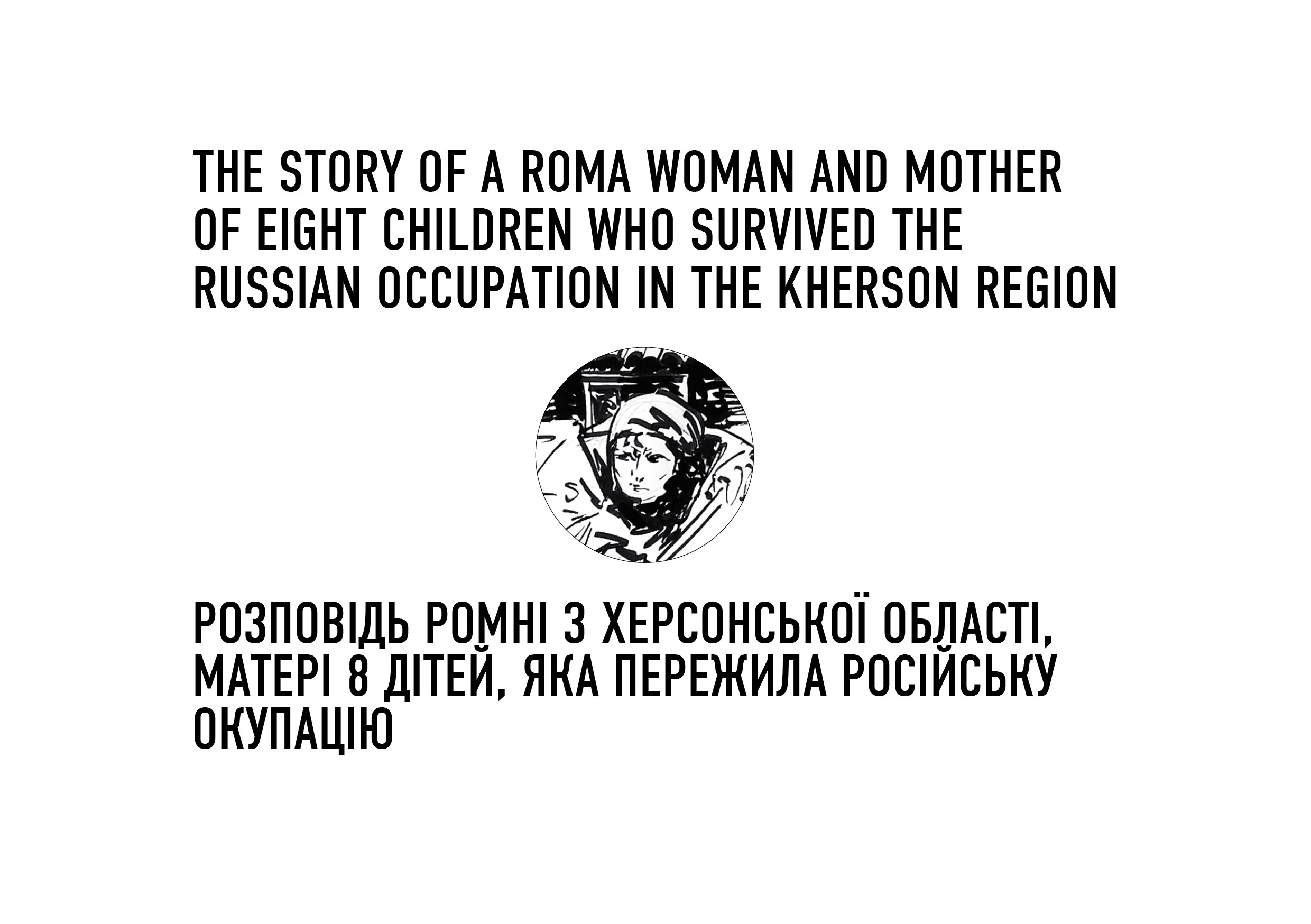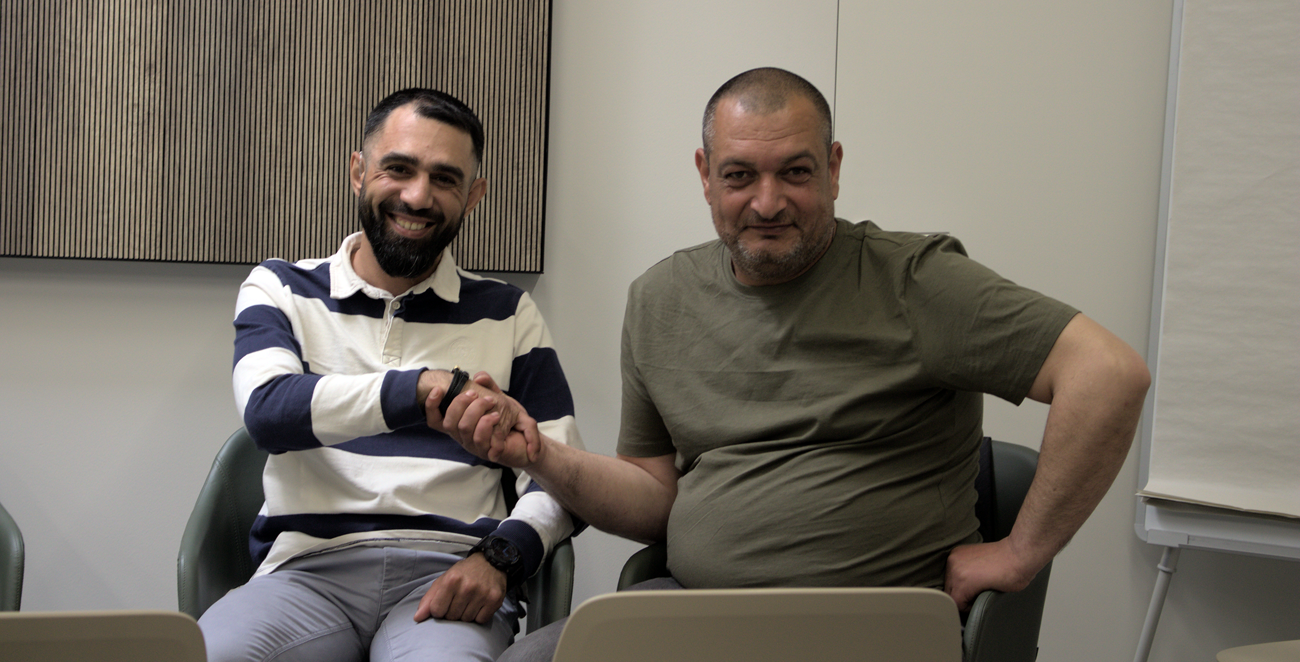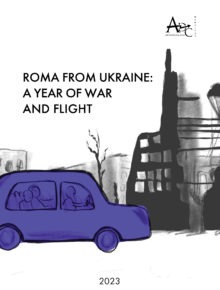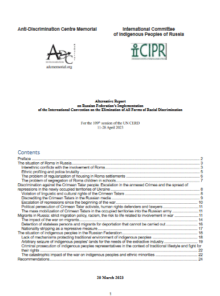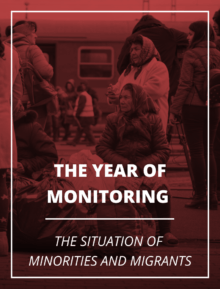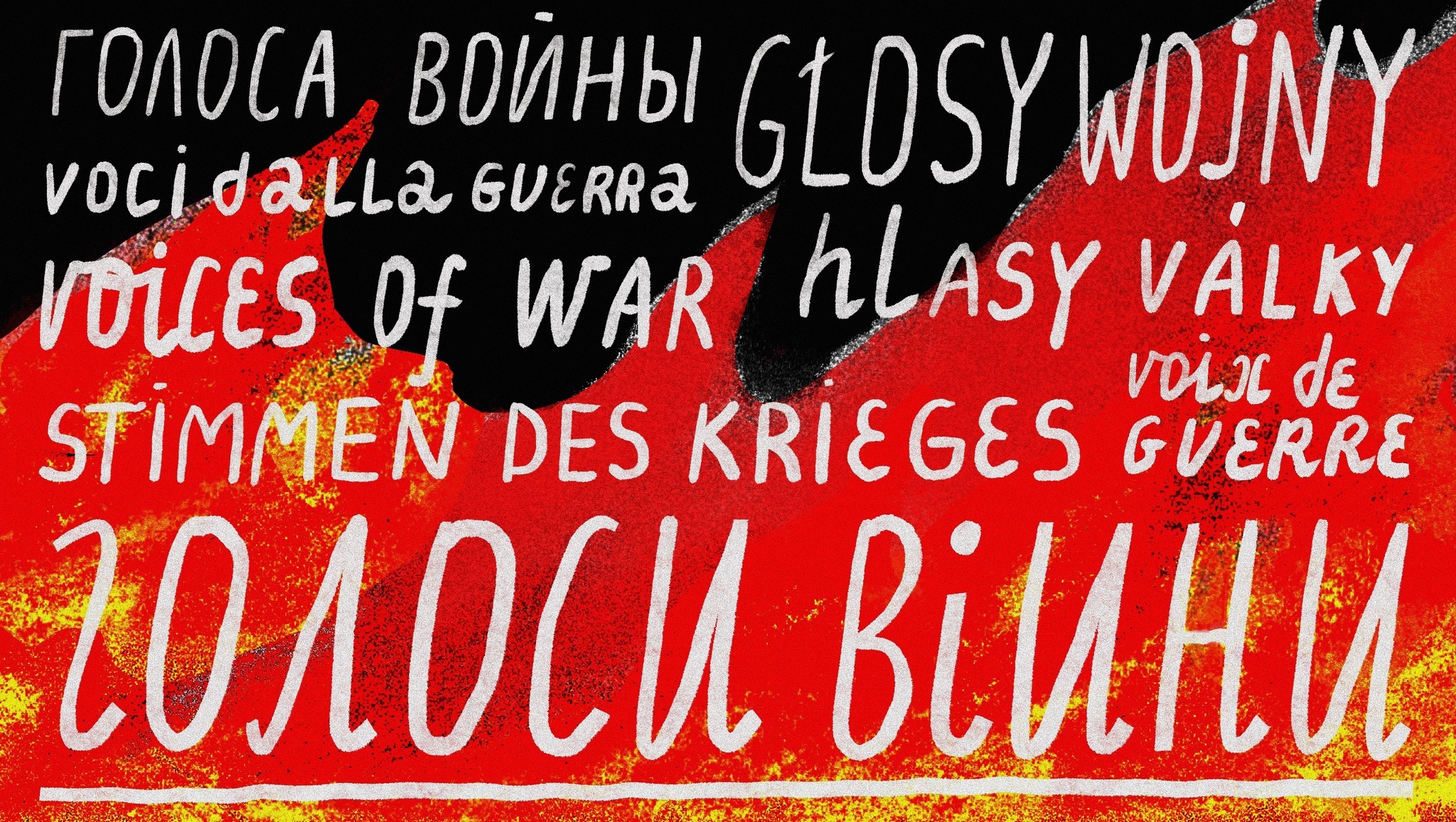Celebrating the International Roma Day on April 8, noting the importance of Roma culture and raising awareness of the problems of the Roma people, we have collected information on how the Roma of Ukraine are living and participating in the life of the country.
In 2024, in the tenth year of the brutal war waged by Russia on the territory of Ukraine, we continue to monitor changes in the lives of Ukrainian Roma. According to some data, the Roma in Ukraine could be compared in number with the Crimean Tatar people and have lived here for all 30+ years of the country’s independence (most Roma had lived here before, back in Soviet times). Many families in the third generation live in their village, in their home and in their region. As they say, “we don’t have our own Israel,” and Ukraine is their home today.
In the third year of a full-scale war, Roma serve in the army, they return to unsafe but native towns and villages even despite air alarms do not allow them to live normally, learn to rebuild their lives in other places in Ukraini if their homes are destroyed and property is lost. Unfortunately, sometimes Roma still face stereotypical attitudes and lack of respect from the ethnic majority.
While collecting this material, we talked with those who live in Kryvy Rih, Sumy and Zaporizhia: with activists who represent and protect the Roma and help them; with those who serve in the army; with those who survived the occupation of their homes by the Russian military. Almost all of them spoke Ukrainian. As for many people in Ukraine, it is normal and usual for Roma to speak several languages (Romani, Russian and Ukrainian).
Roma and their traditional way of life have been stereotypically simplified in the minds of people – a nomadic lifestyle, poverty, dishonest intentions, insufficient education, and a specific appearance. Of course, among Roma there are those who feed these stereotypes and do not integrate into society, but at the same time unequal treatment, discrimination against Roma just for their appearance exist so far, in employment or while dissemination of humanitarian aid. However, in Ukraine there are many Roma who differ from their neighbors only in appearance and traditions, but not in the way of life. The Roma community in Ukraine shares common values such as “this is my land” and common actions: “I will live here and protect it.”
Perhaps, in the wake of today’s rapid changes within the country, people, uniting against an external enemy, learn to form their diversity in a puzzle called “Modern Ukraine” and accept their country and fellow citizens as they are, and not “as we would like to see it”.
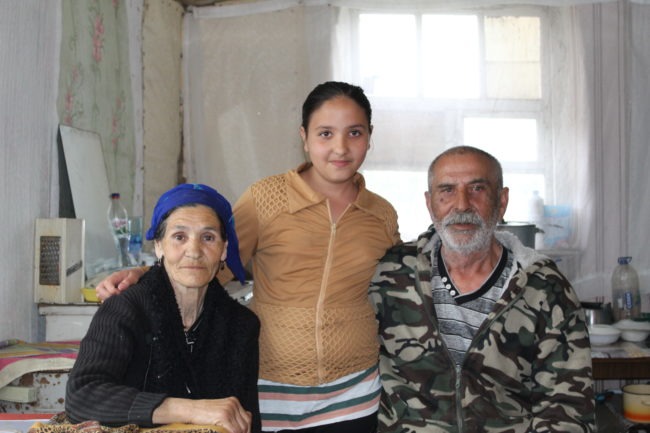
We have a lot of Roma already serving. Unfortunately, some are already dead. They serve all over Ukraine, and we also help them. They call and ask what exactly is needed, so we collect money and try to help. Everyone wants to help, so that there will be a victory as soon as possible. We are holding on as best we can.
Olga Mykhailenko, NGO “Manusha”, SumyThere is a family, they came here from Khmelnytskyi before the war. The guy from Khmelnytskyi had just served, came home from the army, and when they moved to Kryvy Rih, the war began. He immediately went to the military enlistment office, as he was liable for military service, and told them to register him. At first he served in Kryvy Rih, and then went to the front line.
Vasily from Kryvy Rih
In Russia, the attitude towards national minorities leaves much to be desired; aggression and perception of “non–Russians” as “second-rate” people is not uncommon among Russians. During the occupation of the Zaporizhia region, as witnesses told us, the military from the Russian Federation specifically searched for Roma houses.
There are a very small number of Roma families left in the occupied territory. It’s really hard to earn money to live there. Stocks, savings, provisions are gradually running out, so people are still trying to leave those places.
When the occupation had just begun and the first Russian brigades came in, they specifically sought out Roma families and began to put pressure on them, mock them, beat them up to take money, gold, etc. Mothers cried a lot, remembering how they were asked: where are young girls here? Such bullying and violence took place, so information about it quickly spread among Roma families, and they went out at night, sometimes through fields, along trails, risking their lives, to Zaporizhia.
Oleksiy Kirin from the Zaporizhzhya Roma Centre “Lacho Drom”
The Ukrainian language at home and at work, caring for their community, volunteering and providing humanitarian aid, supporting their own in the army, activism in public organizations and educational projects – all this became a response to the problems that Roma faced during the war, to the attitude of the state and ordinary people to Roma, to the new challenges that have torn them away from their usual habitat and routine.
It appeared to be unexpected for some people that many Ukrainian Roma are so attached to their native land, but really those who had to flee from home most of all dream of returning to a free and peaceful Ukraine.
“Give me my lovely Kakhovka, my nook, my house, my garden… My soul is there. The children and grandchildren are here, but sadness opresses me. Give me my native Kakhovka and that’s it…. I think all will be as God wills. This has to end. There will be peace, there will be no war and we will go home, I plan so,” says a woman who had survived occupation in the Kherson region and left for Europe only in February 2024 due to her rapidly deteriorating health condition.
Life on the territory of war: survival, looking for housing and work, helping the most vulnerable
The situation a few dozen kilometers from the border with the Russian Federation – in Kharkiv, Sumy or Kremenchuh – is not the same as in cities in the depths of Ukraine, for example in Odesa or Kryvy Rih, although military operations there also affect everyday life.
An aggravating problem for Roma in the situation of military instability is the lack of education and documents.
The most important question for Roma is just to survive. This applies now, of course, not only to the Roma. But it is very difficult for Roma, because they are often people without education, elderly people are sometimes illiterate, they do not read, do not write.
Miroslav Gorvat, ZakarpatiaWhen Roma asked for help, and representatives of state authorities offered them to run somewhere for a certificate or fill in something extra while these are people who are illiterate! The Roma just turned around and left without help.
Oleksiy Kirin from the Zaporizhzhya Roma Centre “Lacho Drom”During evacuation, there is often a problem with documents. In Belopol, the Roma had a house smashed, but there are constant bombings, so no one will rebuild the house, there is no sense. The family left for Germany, but they didn’t even have time to file documents for compensation.
Olga Mykhailenko, NGO “Manusha”, Sumy
Many Roma who have changed their place of residence have also to change their professional occupation — they have to adopt to the situation, accept any job. Even in Transcarpathia, as local Roma tell us, the situation in employment has deteriorated sharply. And in the cities overloaded with displaced people in the east of Ukraine, this trend also exists. There is also discrimination in employment .
Many have found low-paying jobs: cleaners, movers, sellers. It is a pity that these Roma did not find good positions. They often complain about discrimination when applying for a job – even if a person has an education, has some kind of profession. Seeing that this is a Roma girl or a Roma guy, they will most likely be denied a position.
Most Roma families came from villages where they felt comfortable even without being able to read and write. They had cattle, grew something in the garden, did some simple work for their neighbors – and this was enough for them. But once in cities, they need to have a different level of education, knowledge, and sociability to be able to earn enough for their families”.
Oleksiy Kirin from the Zaporizhzhya Roma Centre “Lacho Drom”
There are fewer Roma migrants in Uzhgorod. Before it reached 800 people from other regions of Ukraine, now its’about 150. They went either abroad or home to the Kharkiv and Kiev regions. Although it is difficult there, but here in Uzhgorod there is also nowhere to live and it is difficult to survive financially. In Zakcarpatia unemployment is rather massive. It is easier to survive in the summer season: they work on construction sites – we traditionally take a lot of Roma as good helpers to the construction site.
Miroslav Gorvat, Zakarpatia
In the military enlistment centers, they do not pay special attention to Roma, the attitude is the same as to the Ukrainians. The fact is that the Roma go to the army voluntarily. Considering that Roma families have financial problems, the guys are even glad that there is an opportunity to receive a decent salary.
Oleksiy Kirin from the Zaporizhzhya Roma Centre “Lacho Drom”
For Roma, discrimination based on nationality is an aggravation of the problems common to all citizens of Ukraine who have been forced to move from dangerous places of residence. Humanitarian aid is also provided by ordinary people who sometimes have in mind stereotypes and norms of unequal treatment of people of Roma origin.
They had a job at home. Many of them had their own business and traded on the market. They left everything. Housing for Roma is a problem all over the country, and abroad too. Because the owners don’t want to rent their property to such category of people as Roma. They refuse us, then we start looking for rent somewhere ourselves, we settle them with our relatives, sometimes in empty houses.
Olga Mykhailenko, NGO “Manusha”, Sumy
Help is not very easy to get if people understand that they are facing Rums. “Did you work? Are you a pensioner to get something? The gypsies have arrived.” It is not very interesting to give them this help to Roma.
Lilia, Kryvy Rih
But there is however good news: the Roma community has found a way to improve its situation. Roma activists unite in public organizations and work as human rights defenders and lawyers. There are educational projects and service organizations for those Roma in Ukraine who need more help and a more inclusive approach.
Recently, most humanitarian aid has been received under the control of public organizations that do not pay attention to a person’s appearance, religion or nationality. If a person is in a difficult situation and comes, for example, to us, then s/he provides documents and signs for humanitarian kits – and that’s it. Government agencies require more documents, a lot of troubles with filling out paperwork to receive assistance.
Kherson families also come to us. There is such a city as Kamenskoye – many Roma lived there before the war, but now their number has increased significantly, because people go to relatives and acquaintances so that they have a place to stay, get some necessary information and help. Many families apply for IDP status in order to receive at least some payments from the state. It’s a small help, but it exists.
Oleksiy Kirin from the Zaporizhzhya Roma Centre “Lacho Drom”
For two years of the war, Roma, like other residents of Ukraine, have been forced to live in constant readiness for shelling, rapid changes in the situation. Those who live in the frontline regions are under the threat of an enemy offensive and immediate evacuation.
Sumy is a frontline area. Every day there are shellings in the region and in the city. Roma are constantly leaving. We have a compact population of Roma here, so there are a lot of them. Some of the Roma are returning. There are those who come from other cities where the attacks are more intensive. We have border areas under constant shelling, but in Sumy it’s a little quieter. That’s why they’re coming here to us. Now the authorities are forcibly evacuating people from the five-kilometre zone. And people leave on their own if they can.
Olga Mykhailenko, NGO “Manusha”, Sumy
Many people are “tired of being afraid,” they have not been taught strict security measures, and in the third year of a full-scale war, they do not run to shelters. At the same time, the Roma residents of the frontline zones interviewed by us are trying to establish a normal life even in these conditions, to think about the future. They, like all residents of Ukraine, place great hopes on the ZSU, on the strength of Ukraine waiting for victory in the war.
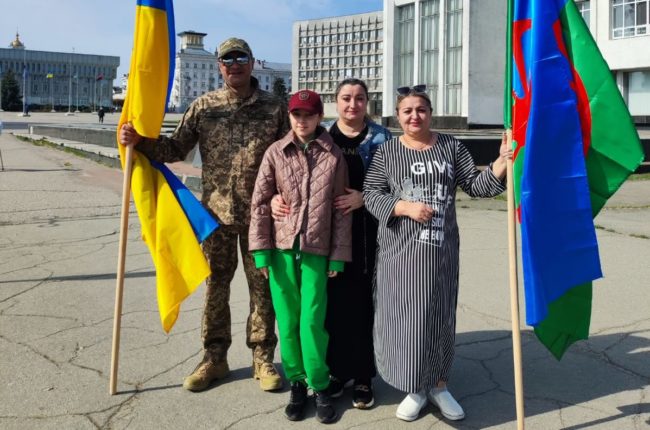
Photo provided by Olga Mikhaylenko, Sumy, “MANUSHA”
Regarding the shelling, we have probably all got used to it. Of course, this should scare a person, but most of them stopped grabbing children and immediately running to a shelter. Yes, the children are walking because we are 25 kilometres from the front line. Children are walking, there are a lot of children in parks, cafes and restaurants are open. People got tired of living in isolation, in fear, in stress, and began to live a normal life again: children walking, girls, guys relaxing. But everyone understands that all this can change very quickly. Almost everyone has an emergency suitcase with documents and necessary things. Even the deputy mayor says that emergency things should be collected so that you can quickly pick up and leave, because the situation can change at any moment.
As for the occupation, there is no such fear, because the city is large, and during these 2 years it has been strengthened. Both Romani and non-Romani families know this. There are fears that constant shelling will begin, because we have already faced this when there were 27 attacks in a couple of hours at night, and it’s really scary – for yourself, for children, and for loved ones, you worry about everyone. But some Roma families are trying to take root here, they see their future in our city, some people see themselves in the towns nearby. They are trying to look for a stable job, they begin to quickly master new professions in order to find a better job. Even in such a difficult time, they are trying to plan their future, to improve it somehow.
Oleksiy Kirin from the Zaporizhzhya Roma Centre “Lacho Drom”
In general, due to vulnerability even before in pre-war life – lower security, lower education, frequent discrimination – during the war, it is more difficult for the Roma population to get help, find housing and work in a new place, and adapt to life abroad. This leads to new moves, instable conditions, and children dropping out of school.
Emigration and return: difficulties of children in getting education
Many Roma who left Ukraine faced discrimination in finding housing, receiving social aid, and integrating into a new life. This led to a “pendulum” migration abroad and back to Ukraine or moving from one European country to another in search of better conditions. Many Roma, having failed to adapt to European rules, returned to Ukraine – often not to their former place of residence, but to friends and relatives in other regions, where it is also difficult to find housing and work.
Now we see a trend of return from European countries. People are returning to Zaporizhia, some of them are returning and staying in Western Ukraine.
Oleksiy Kirin from the Zaporizhzhya Roma Centre “Lacho Drom”
Communicating with some international organizations, for example, the Council of Europe, with representatives of the United Nations, it seems that a lot of things are being done for us. But sometimes this is not the case. For example, housing: they say – you are a family, you like to live in a camp, so you will live in one apartment, for example, 17 people. And such standards, that two or three people should live in one room, or that a mother and child should have a room to live separately from the others, are not always observed in the case of Roma.
I see many people returning, but these are migrating people who come to see how their home is, how their mother is, how their relatives are, and then they go abroad again.
To return permanent… This is a very difficult question, in my opinion. I don’t know what will happen, the situation here is critical. Many have nowhere to go back, no work at home, no way to survive at all.
Miroslav Gorvat, Zakarpatia
Sometimes the reason for returning back to Ukraine is the non-integration of Roma children into schools in European countries. For example, in Germany, school attendance is strictly monitored – among other things, the payment of social benefits depends on this. But not all Roma families manage to meet these requirements.
People want to go home, and they come back; those who have a house left, go to relatives, parents, friends. Some Roma are returning because they did not settle down abroad, could not adapt.
One of the reasons is problems with children; children began to be taken from Roma families. Here is a case: at school, a child is shown something in a picture, but he does not understand, he cannot name it. Parents are given a month – if you do not fix the situation, then we will take the child from the family. They got scared and came back.
Olga Mykhailenko, NGO “Manusha”, Sumy
Many Roma returned because of problems with children. For example, in Germany, Roma children do not always adapt well. Not all children can study well, not everywhere parents can cope with this; sometimes the school is far, the children can’t go there unaccompanied but the parents can’t fetch them to school. And if children do not go to school, they can be taken away from their parents – Roma are very afraid of this. There were a lot of rumors: oh, the children are being taken away, some family is telling something, another family is telling something else. Probably, it is difficult for children, and probably the children are not accepted very well, especially from poor Roma families. The attitude to them is completely different. People have returned home. Even if it’’s bad, but they are already at home. It is clear that in Germany people receive at least some money, they have social security, but apparently they leave because of school.
Lilia, Kryvy Rih
Resettlement within Ukraine or emigration has become a very big challenge for the education of Roma children. Even before the war, experts noted that the forced transition to online education during the pandemic led to the fact that many children dropped out of school. They did not have the necessary equipment and Internet access, or conditions for studying at home. The war has aggravated this problem: Roma children still lack technical means of education, parents cannot help them and create the necessary conditions, and sometimes they are simply afraid to let their children go to school because of constant shelling. Relocation and other hardships of the war force families to take care primarily of survival. Thus, children’s education fades into the background, and even in those families where the older and middle generation received education, today’s children find themselves on the verge of falling out of the school environment and do not have alternative ways of school integration.
We have constantly an educational space for children at the Roma center. A teacher works with children preparing them for the first grade or pulling them up according to the program of the respective class. Currently, 10 children are attending our educational center, who are supposed to go to the first grade in September. There should be a lot more of them.
In the small villages where the Roma have left, there are no more such centers, and there is no one there to prepare the children for school. As for kindergartens, among the newly arrived Roma, only a few sent their children there. That means that parents most likely do not plan to prepare their children for school.
Unfortunately, many Roma parents do not understand the importance of education for children, and there are already a certain number of children who, due to their age, missed the opportunity to go to first grade – they are already 12-13 years old, and then they will be shy to go to school. The government does not organize anything specifically for them, because a certain number of such children should gather. We try to convince parents that the world has changed and it will not be the same as before, that children need education and without it it will be very difficult for them to support their future families. If children are taught, then everything will be fine for them, they are capable.
By September, the number of future students may change dramatically, because the situation in Zaporizhia is very precarious. If the situation worsens, they will leave; if the situation improves, we will be able to see an influx of new families from Western Ukraine, from Europe, who want to be closer to their homes, to their relatives.
Oleksiy Kirin from the Zaporizhzhya Roma Centre “Lacho Drom”
There are schools that work 2-3 times a week. Here, where Roma live compactly, there is a mainstream school, but there is no equipped shelter in it, so it is closed and children study online. For distance learning, you need to have gadgets, and not everyone has them. It started with Covid, and now the children in general are very far behind the program. In the region they study totally online, children in the region do not go to school. We asked the foundations for gadgets for 80 children in our entire region, but for now, silence. Earlier, I know that there was help and gadgets were distributed, but not a single Roma family received them.
If the father or mother is literate, then they can teach the child something, but if not, what will they teach? That’s why we opened this center to train first-graders. And our center is open for both children and parents who want to learn to read and develop.
A lot of people are afraid to let their children go to school. I have two grandchildren who go to a school with a shelter, but we are still afraid to let them go. And there are those who do not let children go at all.
Children stay at home all day, where should they go? It’s dangerous, you won’t walk like you used to. There’s an alarm every half hour, it’s impossible.
Olga Mykhailenko, NGO “Manusha”, Sumy
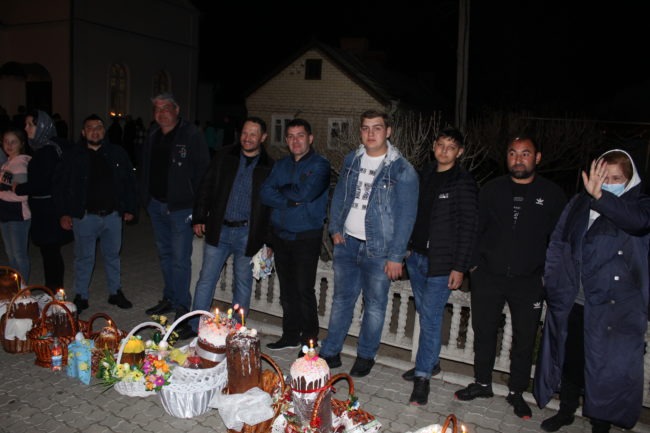
As a conclusion of the review, here are words of Alexey Kirin from the Zaporizhzhya Roma Centre “Lacho Drom”:
“Today, the word “hope” has got a completely different meaning, not the same as it was before the full-scale invasion in 2022. This word has a very great meaning and weight. When a family still has hope for a bright future and tries to find it for itself, these are very serious and important things in our community.”
We are grateful for the help and support in creating the material of the expert and colleague on the Roma rights protection Janush Panchenko, as well as Olga Mykhailenko from the NGO “MANUSHA” and Oleksiy Kirin from the Zaporizhzhya Roma Centre “Lacho Drom”.
Vira GRUZOVA, ADC Memorial expert
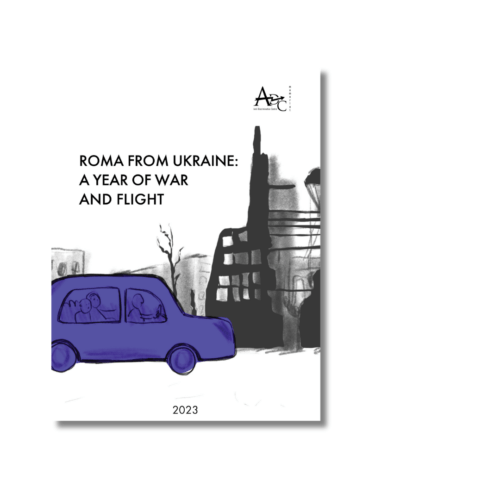
The report “Roma From Ukraine: A Year of War and Flight” contains the accounts of Romani people and the volunteers who helped them about their lives after fleeing Ukraine: thousands of Roma became refugees and encountered discrimination and social isolation in European countries; people who found themselves in occupied territories right after the war started to save their lives was to travel to Russia, where they were forced to undergo the “filtration” procedure at the border and endure life in refugee centers. Many of whom Russia was merely a transit country had a difficult time leaving for European countries because of various problems with their identity documents.
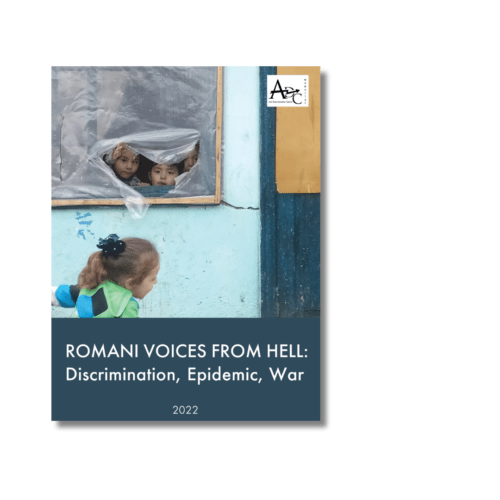
The report “Romani Voices From Hell” is based on interviews with Romani people in occupied territories and Romani people who had become refugees and lost their homes.









 Feedback
Feedback 